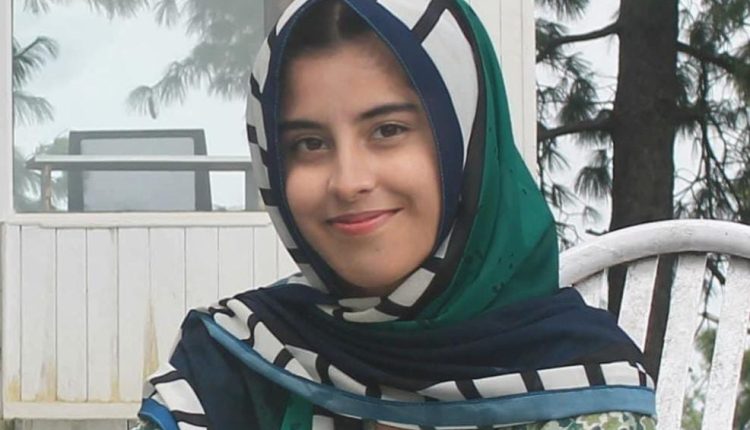By: Samra Khaksar
They say some dates never fade; they burn themselves into the conscience of nations. For Kashmir, that date is October 27, 1947; a day that started with the sound of soldiers marching in and ended with the oppressive silence of occupation. To the world, it may seem like just another day in the complex history after colonial rule. But for Kashmiris, it’s the day when they lost their right to choose their own future, under the guise of protection, and darkness filled their lives. When the first Indian occupation troops landed in Srinagar, claiming to follow the so-called Instrument of Accession, it was presented as a move to bring back order. But, the ink on that document was as controversial as the authority of the man who signed it. Maharaja Hari Singh had already lost control over the land, as the people had risen in open resistance, demanding freedom and self-determination. What was portrayed as a legal accession was nothing less than an invasion, the start of a long and relentless occupation hidden behind claims of legitimacy.
In those first few days, what unfolded was more than a territorial dispute; it was the birth of a moral crisis. Thousands were forced to leave their homes, communities were broken apart, and an entire generation was marked by fear and uncertainty. The promise of a plebiscite, a solemn assurance from both Indian leaders and the United Nations was made to calm the people and the international community alike. But like so many promises born of politics, it was soon buried under the rubble of power. The United Nations resolutions that once seemed like a glimmer of hope now gather dust, while Kashmiris continue to wait for the day they can speak for themselves.
Decades later, the meaning of Black Day has grown beyond just remembering, it has become a symbol of endurance, of defiance, and of memory that refuses to die. This day every year, life in Indian illegally occupied Jammu & Kashmir (IIoJK) slows down. Streets are empty, windows stay closed, shutters remain down, and black flags quietly fly against the pale October sky. This day is not just a day of mourning; it is a day of protest against what Kashmiris see as the world’s lack of concern and India’s growing control. And that control has only grown stronger over time. In August 2019, when India revoked Articles 370 and 35-A of its constitution, taking away Jammu and IIoJK’s special status, it was celebrated by the Indian government as the dawn of peace and development. But in reality, it felt like déjà vu; a new form of occupation covering the old one. Communication was cut, curfews were imposed, and mass arrests followed. Journalists were silenced, political voices were erased, and the region was opened to demographic changes. Once again, the story of “integration” was dressed up in the language of coercion.
Generations have now grown up under the shadow of militarization, where seeing barbed wire and the sound of boots are as normal as the morning azaan. The world, on the other hand, vibrates between silence and selective outrage, moved briefly by images of children blinded by pellets or reports of arbitrary arrests, only to turn away once the headlines fade. Black Day, therefore, serves as a yearly reminder not only of occupation, but of the global conscience that chooses convenience over courage. Yet, Kashmir’s story is not merely one of suffering. It is also about resistance, about poets who wrote by candlelight, about mothers who would not forget their lost sons, and about young people who turned memories into protests. From the streets of Srinagar to the halls of the United Nations, Kashmiris continue to insist that identity cannot be taken by force, and dignity cannot be taken away by the law. Deep down in that resistance lies their power; a quiet, constant assertion that truth, even when buried under decades of propaganda, does not die.
Black Day is not just about looking at the past, it is about forcing the world to look into the future, to question why a conflict that began in 1947 still bleeds in 2025, why the promise of self-governance still gets used in electoral rhetoric, and why the human cost of this war becomes acceptable collateral damage. It is about accountability, not just for those who pull the triggers, but for those who see the smoke but remain silent. IIoJK’s tragedy is not just that it was betrayed once, but that it continues to be betrayed due to the shifting moral standards of global politics, by institutions that are too afraid to challenge powerful states, and by the hypocrisy that advocates human rights everywhere except where it might offend economic interests.
Every year, on Black Day, Kashmiris remember, they are not only holding a remembrance of all that was lost in 1947; they also condemn the world in the present moment. They ask the world: how many times do people have to prove their suffering before it gets taken seriously? As black flags rise yet again this October, waving in the cold mountain winds, the message from the valley is both eerie and obvious. History may have been written by the powerful, but memory belongs to those who suffered. And so, Kashmir’s Black Day goes on year after year, not in a tedious ritual sense, but in the form of a question that refuses to die.
After seventy-eight years of silence, suppression, and struggle, will the world finally listen, or has justice itself gone blind to Kashmir’s cry for freedom?
The writer is a student of Strategic Studies at National Defence University. She is a research intern at the Kashmir Institute of International Relations (KIIR) and also serves as a Member of HEAL Pakistan Organization.

